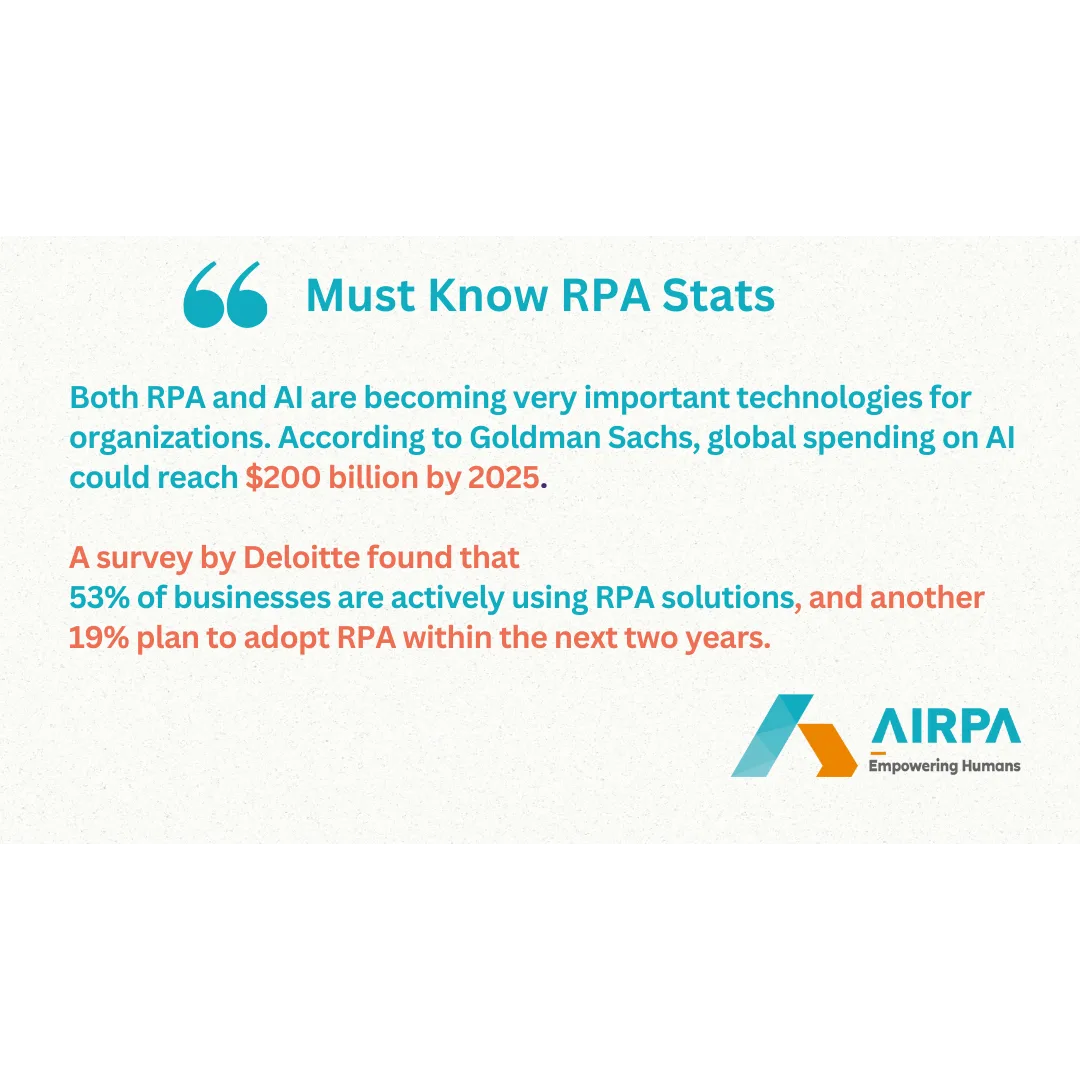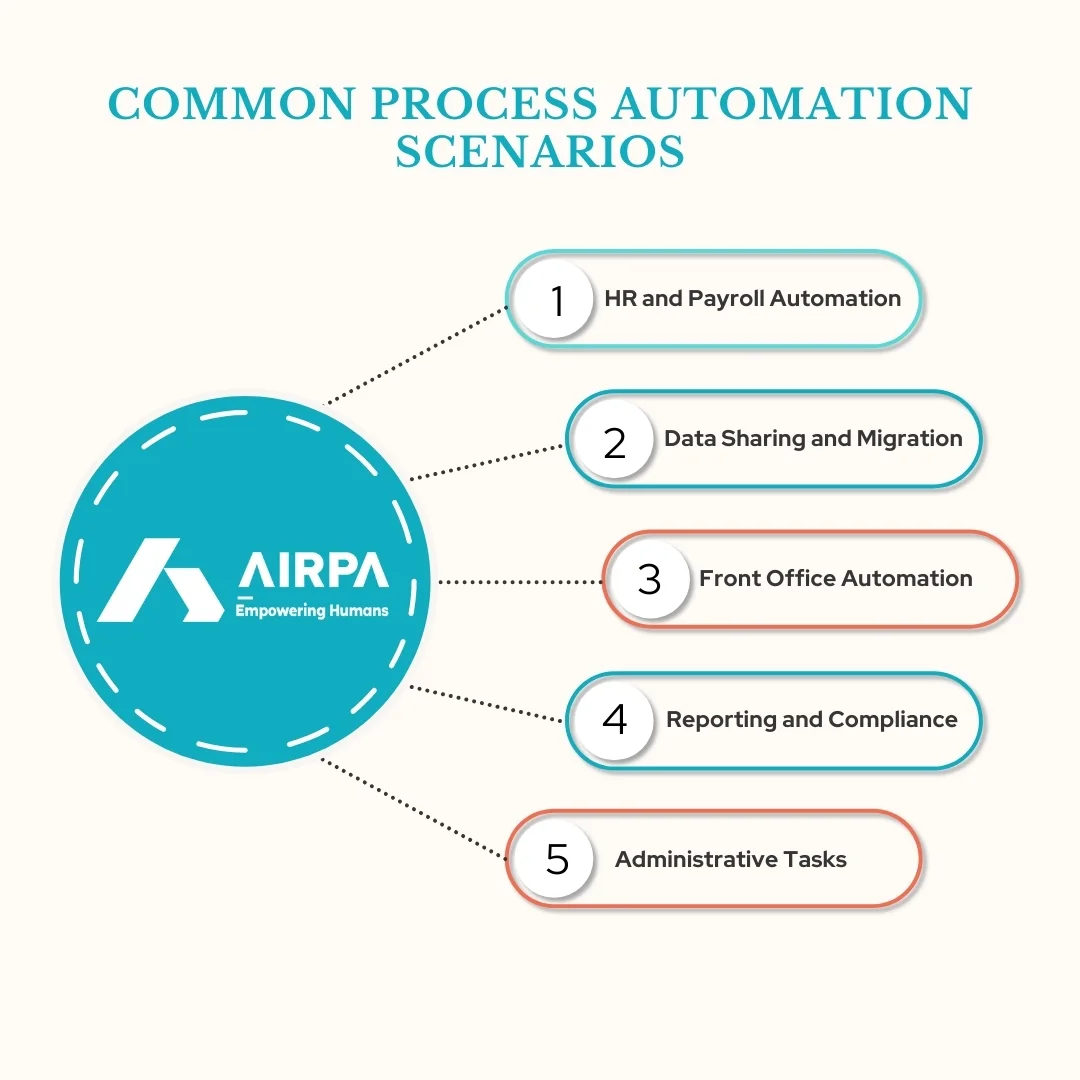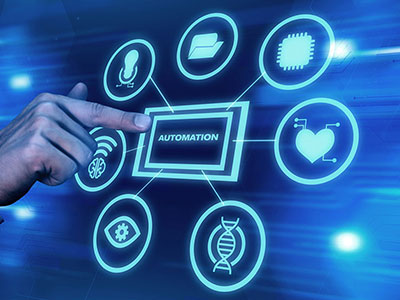
Amplifying Automation: The RPA-AI Alliance

Table of Contents
Investments in Robotic Process Automation (RPA) have been increasing steadily since it started. The growth of Artificial Intelligence (AI) is also boosting RPA's popularity even further.

Using AI together with RPA expands what RPA can do and allows organizations to automate tasks more efficiently and effectively.
Talk to Our Automation Expert!
+91 855-975-9735
Want to experience Intelligent Automation in Action or Need help Building the Right Automation Plan?
How RPA and AI can be combined?
Firstly, it's important to distinguish RPA from AI. In the middle of the business world's race to investigate these cutting-edge technologies, understanding their actual significance is crucial for effective utilization.
RPA is a method based on rule-based parameters that allows digital workers to execute business processes quickly and in large quantities. It works well in very repetitive, somewhat straightforward, linear processes with little room for exceptions. When integrating APIs with legacy systems is not practical, it can also be quite helpful.
Let’s learn in-depth,
AI is a technology that has the ability to "think" for itself, allowing it to carry out more complicated tasks on its own. AI is beneficial to processes that require a particular level of analysis or decision-making, in addition to those that make extensive use of data.
Combining AI and RPA provides a straightforward and effective automation approach. While AI can provide analytical and decision-making skills, RPA can handle repetitive jobs.
Specifically, RPA performance can be maximized using this integrated strategy. This covers AI-based exception management, automatic auditing, and self-adjusting algorithms. In order to support AI projects, it can also improve data validation and collection.
To get value from RPA, combine it with AI
In the early days of Robotic Process Automation (RPA), the focus was mainly on automating "simple" processes. Forrester, a research firm, suggested that organizations should "find tasks with high volumes to get the most value from RPA." However, as these simple, repetitive tasks become automated, it will get harder to find more of them.
This is leading RPA providers to integrate artificial intelligence (AI) and machine learning capabilities into their RPA products. By combining RPA with AI technologies like machine learning, it will enable automating a wider variety of processes across different business areas like finance, marketing, or HR. The combined RPA+AI solutions can be scaled to meet the changing needs of businesses.
In simple terms, while basic RPA was good for automating high-volume repetitive tasks initially, adding AI allows automating more complex processes across more business functions as needs evolve over time. The integration of AI expands what RPA can do.
The digital workforce offers numerous benefits to businesses, including
1. Increased efficiency and production by automating repetitive processes and increasing staff output.
2. Improved business performance by utilizing freed-up capacity to improve experience, minimize risk, and increase revenue.
3. Enabling company transformation by developing new products and business models.
Why Does AIRPA Propose RPA & AI?
Artificial intelligence and robotic process automation have completely changed the way businesses operate. RPA is used by businesses across a wide range of sectors and marketplaces to automate processes that involves little to no human intervention. Prior to embarking on an RPA integration journey, determine which business processes stand to gain the most from automation. Collaborate with an appropriate RPA partner to identify how robotic process automation will affect people, protocols, and regulations.
AIRPA prefers AI builders that are intended to improve your business processes. Your firm may use intelligence to automate procedures and draw conclusions from data utilizing power apps and AI builder. This propels your business to success. We provide end-to-end RPA and AI services, including strategy planning, deployment, and maintenance. Our professional staff contributes to the automation and organization of corporate processes, resulting in increased productivity and efficiency.
Envisioning the Future with RPA and AI
Now is the time to embrace integrated RPA and AI to maximize RPA's value for your organization. With the current global AI excitement, implementing RPA may be the first step to success.
In today's highly competitive and rapidly evolving business world, AI's future potential is boundless. This means RPA will quickly become essential to keep pace, as long as it's correctly integrated with AI from the start.
As the business landscape accelerates, combining RPA and AI will be crucial for organizations to thrive. Integrating these technologies early can drive innovation, efficiency, and sustainable growth.
What is AI & RPA used for?
The industries that use AI & RPA the most today include banks, healthcare, insurance, utilities, and telecommunications. These industries are finding it difficult to integrate various systems and are using AI along with RPA solutions to automate manual tasks and processes that they currently have.
Some Scenarios – Finance specific
If we look at the finance industry, for example, we can see that they are utilizing AI & RPA to revolutionize banking procedures and systems in order to provide better client care.
- Processing bank account applications and automating the process of making decisions
- Home loan approval processes are now completed in minutes rather than days, and deposit queries and services are now processed in minutes instead of days.
- Introducing new loans;
- Digitizing the accounts payable procedure;
- Processing customer care
Common process scenarios

Final Thoughts
AIRPA can assist you to know more about how to deploy RPA and AI successfully. Whatever your industry, our worldwide team of RPA experts can evaluate your use cases and identify the keys to a successful rollout. Contact us immediately to discuss your specific needs.
Popular Tags:
Related Articles

How Automation and AI are Reshaping the Fintech Landscape
Is AI the driving force behind fintech's rapid evolution?





